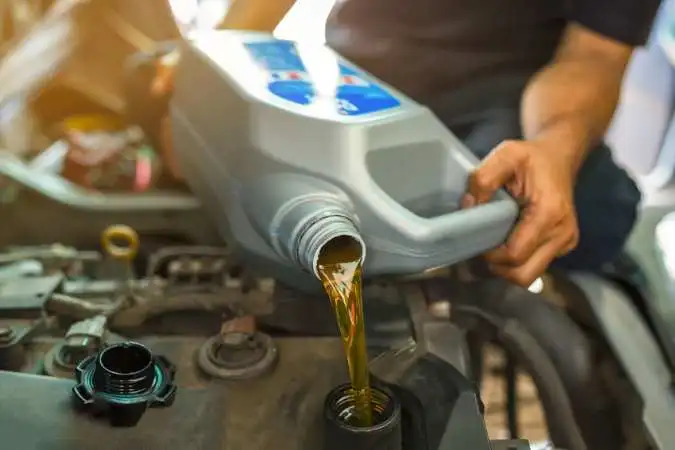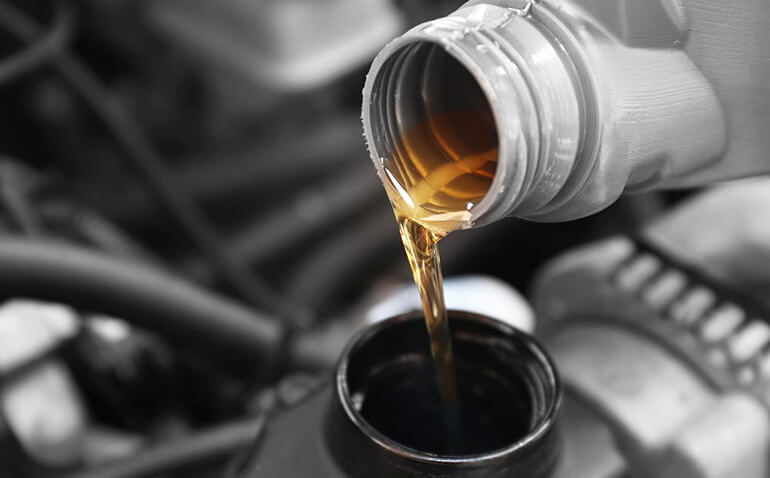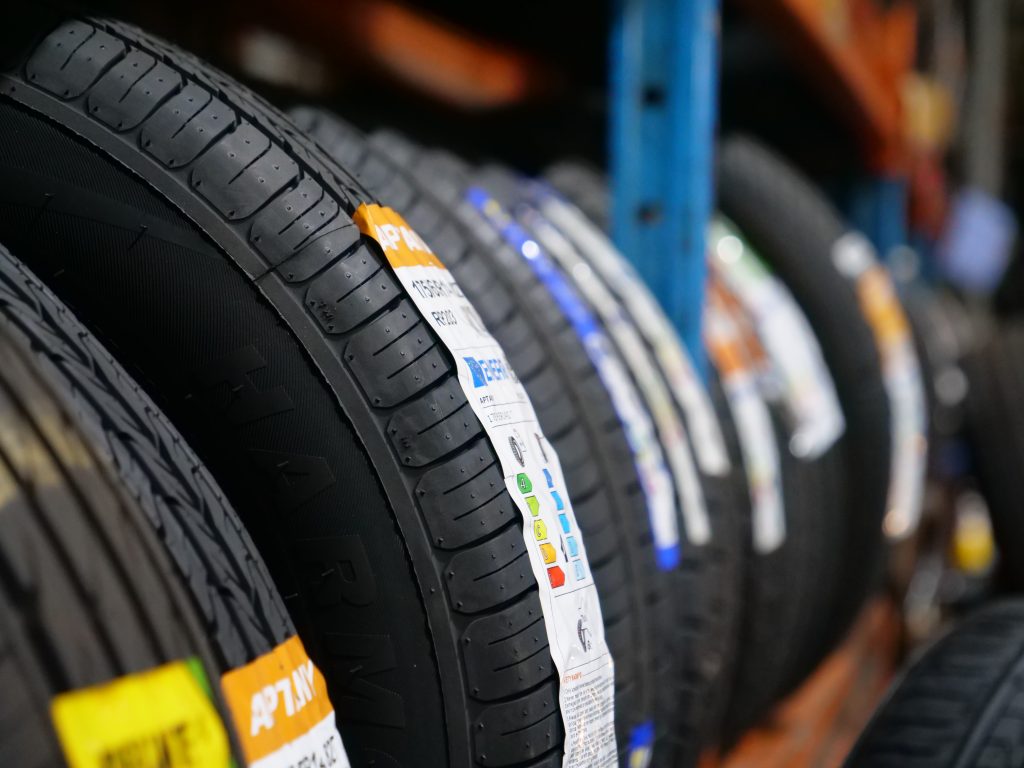Maintaining the health of your vehicle’s engine is crucial, and a critical aspect of this entails regularly changing the oil. Engine oil plays various vital roles such as lubricating moving parts, controlling friction, regulating engine temperature and trapping impurities. Ignoring regular oil changes can lead to potentially severe ramifications like decreased efficiency in engines increasing wear and tear rate or even potential disastrous damage to the machine itself.
Classes and Grades of Engine Oils
Conventional Motor Oil
It’s the normal type used in most vehicles. This grade of motor oil is made from crude oil and performs well under various conditions. Nevertheless, it should be changed more frequently than synthetic oils.
Synthetic Motor Oil
Synthetic motor oil is chemically designed to provide better performance and protection. It lasts longer, works better at extreme temperature ranges and sometimes has additives that enhance its protective qualities.
Synthetic Blend Motor Oil
This kind combines synthetic with conventional oils thereby achieving both performance balance as well as cost-effectiveness. It’s a popular choice for drivers who desire greater protection than what conventional oils provide but not as expensive as full synthetic ones.
Motor Oil for High Mileage
This motor oil is meant for cars with over seventy-five thousand miles. It is equipped with additives that reduce oil consumption and leaks to give older engines an easy run.
Factors Determining How Often One Should Change the Oil
Driving Conditions
City Driving
Therefore, if you are driving in city conditions, where there are a lot of stops and starts in traffic, this will put more pressure on your engine hence necessitate frequent oil change.
Highway Driving
That’s why highway driving at constant speeds often requires less stress on the engine and longer intervals between oil changes.
Towing and Heavy Loads
If you frequently pull heavy loads or drive through mountains, it will also make your engine work harder thus you will have to change your oil more often.
Vehicle Age and Make
And finally, consider the age of your vehicle or how many miles on the odometer before deciding on whether you need to change your lubricant frequently. They also vary from maker to maker about when they should be changed.
Oil Type Used
Additionally, what kind of lubricants do you pour into? Synthetics typically last longer than conventional oils.
Manufacturer Recommendations
Remember always to consult the owner’s manual provided by the manufacturer regarding how long they can go without changing their car’s oil. By following these instructions one ensures that their engine remains optimal throughout its life.
Symptoms and Signs That Indicate an Oil Change is Needed
Oil Change Light
The modern automobile has a warning light which signals to you about the need for an oil change.
Engine Noise
Any knocking or rumbling noises coming from the engine might be due to old or low oil that doesn’t lubricate it well enough.
Exhaust Smoke
When your engine produces excessive exhaust smoke, this could imply dirty oil or burning of engines’ oils.
Dark and Dirty Oil
Consistently check on color as well as consistency of your oil; if it is dark and thick, it’s time for a change.
Oil Smell Inside the Car
A high stench of oil inside your car may indicate leakage or other severe issues that require immediate checking and changing of oils.
Causes and Risk Factors of Oil Deterioration
Heat and Oxidation
Extreme temperatures in engines can cause the degradation of motor oils through oxidation making them less efficient when used for lubricating purposes.
Contaminants and Deposits
Particles such as dust, dirt, soot from combustion can contaminate motor oils by forming sludge which reduces their ability to lubricate.
Additive Depletion
Over time these additives become depleted thus rendering the performance
enhancing capabilities of engine oils ineffective.
Moisture and Condensation
Water from condensation may mix with oil leading to sludges forming which reduce its protective nature.
Diagnosis and Tests for Oil Condition
Visual Inspection
Inspect always the color and smoothness of your oil. In other words, clear transparent oil is good while dark thick oil needs replacing.
Dipstick Test
Use the dipstick to verify whether your oil level is in range or not. Drop down or dirty fluid shows that it is about time you replace it.
Professional Oil Analysis
In addition, professional analysis can help you determine when your vehicle’s engine needs an oil change by providing detailed information concerning its condition and contaminants associated with it.
Treatment Options: When and Where to Get Your Oil Changed
DIY Oil Changes
Doing so could save money on maintenance expenses as well as ensure that the job has been done correctly. However, right equipment tools are required before one can proceed.
Quick Lube Stations
They also offer lube changes quickly at convenient locations which often include top offs of other fluids such as tires among others.
Dealership Service
With this choice for maintenance, customers will have their engines filled with recommended oils and filters by qualified staffs from manufacturing companies.
Independent Mechanics
You will find numerous independent mechanics who give lower prices compared to dealerships but still provide good quality motor oil services.
Insights from experts regarding the process of changing oil in vehicles.
Preventive Measures to Prolong the Lifespan of Oil
Using High-Quality Oil Filters
High-quality oil filters capture larger quantities of pollutants, guaranteeing that your oil stays cleaner for longer periods.
Routine Maintenance Schedule
By adhering to a regular maintenance schedule and promptly changing oil, you can guarantee the smooth operation of your engine.
Reducing the Quantity of Brief Excursions.
If the engine is not fully warmed up, taking short trips can result in moisture and fuel blending with oil which reduces its effectiveness.
Engine Cooling
Checking the functionality of the engine’s cooling system is crucial in order to avoid oil breakdown from overheating.
“The opinions of experts in the automotive industry”
According to Automotive Engineer Jane Doe, nothing is more critical than routine oil changes when it comes to prolonging your engine’s lifespan.
Mechanics’ suggestions
John Smith, the mechanic suggests adhering to the intervals suggested by manufacturers for oil changes and using superior quality oil in order to guarantee peak engine performance.
Best Practices in the Industry
To ensure the health of your engine, it is important to consistently use the recommended oil type and replace the oil filter each time you change your oil.
Reworded: End result, final decision or summary
Ensuring optimal engine health and performance involves prioritizing routine oil changes. Familiarize yourself with various types of oils, factors that influence the frequency of oil change requirements, as well as any indications pointing towards a necessary change in order to keep your engine running smoothly and efficiently. Don’t wait for warning signs; consistently implement timely oil changes into your vehicle maintenance schedule to guarantee long-term success. Schedule your next appointment today!



